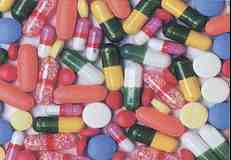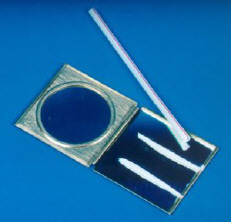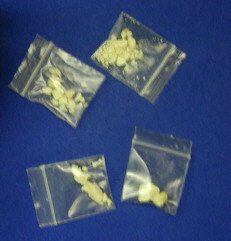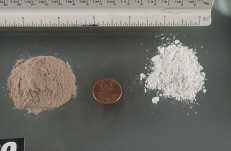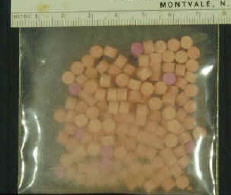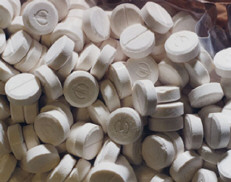This page features a comprehensive listings of drugs and overdose symptoms and field testing procedures.
People who are heavily addicted to drugs usually use them to feel better, but drug abuse can have dreadful drawback consequences.
The frequent use of drugs such as cannabis or heroin can become uncontrolled and may lead to serious physical and mental problems.
There are a lot of bewildering different words used to describe drug use and addiction problems. Not every expert will agree with the definitions here, but being consistent about the terms used helps to reduce the confusion and anxiety everyone feels when faced with this problem.
Amphetamines (Amphetamine Sulphate)
Category
Stimulant, central nervous system—Amphetamine; Dextroamphetamine; Methamphetamine.
Side Effects of This Drug
Common: Anxiety; crying; depersonalization; dry mouth; dysphoria; euphoria; fast, pounding, or irregular heartbeat or pulse; hyperventilation; irritability; mental depression; nervousness; paranoia; quick to react or overreact emotionally; rapidly changing moods; restlessness; shaking; shortness of breath; trouble sleeping. |
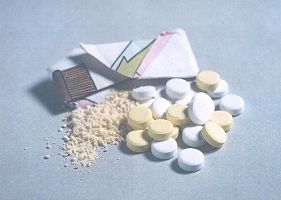 |
With long-term use or high doses
Difficulty in breathing; dizziness or feeling faint; increased blood pressure; mood or mental changes; pounding heartbeat; unusual tiredness or weakness
Look For
Folded wraps of paper about 2.5 ins by 2.5 ins. When unfolded; powder may be white, greyish white, pink or yellow in colour; tablets; needles; and syringes.
|
Benzodiazepines
Category
Sedative-hypnotic—Alprazolam; Bromazepam; Chlordiazepoxide; Clonazepam; Clorazepate; Diazepam; Estazolam; Flurazepam; Halazepam; Ketazolam; Lorazepam; Nitrazepam; Oxazepam; Prazepam; Quazepam; Temazepam; Triazolam
Side Effects of This Drug
Common: Anxiety; confusion (may be more common in the elderly); fast, pounding, or irregular heartbeat; lack of memory of events taking place after benzodiazepine is taken (may be more common with triazolam); mental depression |
|
With long-term use or high doses
Confusion (continuing); convulsions (seizures); drowsiness (severe) or coma; shakiness; slow heartbeat; slow reflexes; slurred speech (continuing); staggering; troubled breathing; weakness (severe).
Look For:
Tablets and capsules of various colours - green and yellow for Temazepam; needles and syringes.
|
Cannabis (Marijuana, Hashish)
Category
MARIJUANA also know as grass, pot, reefer, joint, hashish, cannabis, weed, and Mary Jane.
Side Effects of This Drug
Marijuana has specific effects that may decrease one's ability to perform tasks requiring a great deal of coordination (such as driving a car). Visual tracking is impaired, and the sense of time is typically prolonged.
Unpleasant effects that may occur include depersonalization (inability to distinguish oneself from others), changed body image, disorientation, and acute panic reactions or severe paranoia. |
|
With long-term use or high doses
Marijuana effects may include:
- Blood-shot eyes
- Increased heart rate and blood pressure
- Bronchodilatation (widening of the airways)
- In some users, bronchial (airway) irritation leading to bronchoconstriction (narrowing of the airways) or bronchospasm (airway spasms, leading to narrowing of the airways)
- Pharyngitis, sinusitis, bronchitis, and asthma in heavy users
- Possible serious effects on the immune system.
Look For:
Butt ends (roach) of hand-rolled cigarettes (joint); strong smell of burning leaves; large cigarette papers. |
Cocaine
Cocaine is an illegal drug and may be made into a white powder that can be snorted (sniffed) into your nose. It may also be mixed with water and injected (given with a needle) which is stuck into a vein. The white powder may also be made into "crack" cocaine or "free base" and smoked.
Side Effects of This Drug
Cocaine intoxication may cause one or more of the following signs and symptoms:
- Being easily angered, having mood swings, or threatening to hurt other people.
- Being unable to focus on one thing, or talking when your words do not make sense to other people.
- Feeling that you are the center of everyone's attention, or thinking that people are following you.
- Having a headache, or hearing ringing in your ears.
- Hearing or feeling things that you know are not there ("coke bugs").
- Not enjoying the things you used to enjoy, or thinking about, planning to, or trying to kill yourself.
|
|
With long-term use or high doses
Severe and long time cocaine intoxication may lead to the following:
- Seizures (convulsions).
- Heart attack.
- Your heartbeat to be irregular.
- Your body temperature to rise very high.
- Death.
Look For:
Folded wraps of paper; syringes and needles; handbag mirrors and razor blades; straw for sniffing or snorting. |
Crack
Crack is cocaine that has not been neutralized by an acid to make the hydrochloride salt. This form of cocaine comes in a rock crystal that can be heated and its vapors smoked.
Side Effects of This Drug
The short term effects of crack:
- Magnification of pleasure, euphoria
- Alertness and in some cases - hyper-alertness
- Increased and sometimes a grandiose sense of well being
- Decreased anxiety
- Lower social inhibitions: more sociable and talkative
- Heightened energy, self-esteem, sexuality and emotions aroused by interpersonal experiences
- Appetite loss; weight loss
|
|
With long-term use or high doses
- increased heart rate
- Abnormal heartbeat
- Heart attack
- Sudden, sharp blood pressure increase
- Stroke
- Extreme depression
- Suicidal behavior
Look For:
Paper wraps; small plastic bags; water pipes. |
Heroin
Heroin is an addictive drug and is processed from morphine, a naturally occurring substance extracted from the seedpod of the Asian poppy plant. Heroin usually appears as a white or brown powder.
Side Effects of This Drug
Short term heroin side effects include but are not limited to:
- Rush
- Depressed respiration
- Clouded mental functioning
- Nausea and vomiting
- Suppression of pain
- Spontaneous abortion
|
|
With long-term use or high doses
Long term heroin side effects include but are not limited to:
- Addiction
- Abscesses
- Collapsed veins
- Bacterial infections
- Infection of heart lining and valves
- Arthritis and other rheumatologic problems
- Infectious diseases, for example, HIV/AIDS and hepatitis B and C
Look For:
Wraps of paper; syringes and needles; blackened tinfoil; tourniquet (belt, tie, or string); bent spoons; spent matches; bottle caps. |
L.S.D
LSD (lysergic acid diethylamide) is one of the major drugs making up the hallucinogen class of drugs. Hallucinogens cause hallucinations—profound distortions in a person’s perception of reality.
Side Effects of This Drug
The effects of LSD are more commonly known as a ‘trip’ which may lead the user to experience their surroundings in a very different way. Sense of movement and time may speed up or slow down. Objects, color and sound may become distorted. Once a trip starts, there’s no way of stopping it. Effects can last up to twelve hours depending on the dose. |
|
With long-term use or high doses
Two long-term effects persistent psychosis and hallucinogen persisting perception disorder (HPPD), more commonly referred to as "flashbacks"-have been associated with use of LSD.
Look For:
Small tablets or squares of paper; occasional limb trembling and shivering; expressions of fear and anxiety. |
MDMA
MDMA (3,4 methylenedioxymethamphetamine) is a synthetic, psychoactive drug chemically similar to the stimulant methamphetamine and the hallucinogen mescaline.
Side Effects of This Drug
Effects of MDMA on the Brain
MDMA appears to have several effects on the brain. MDMA can:
- cause the release of the neurotransmitter called serotonin.
- block the reuptake of serotonin by the synaptic terminal that releases it.
- deplete the amount of serotonin in the brain.
|
|
BE CAREFUL:
- Ecstasy is illegal and a conviction for possession can carry long prison sentences.
- Frequent or high doses have been linked to neurotoxic damage in laboratory animals. It is still unknown whether such damage occurs in humans or, if it does, whether this has any long-term, negative consequences.
- Some people experience depression after taking MDMA. This is caused by MDMA's action on certain brain chemicals.
- There have been some deaths associated with MDMA. Usually these have been a result of heatstroke from dancing for long periods of time in hot clubs without replenishing lost body fluids.
- Much of what is sold as "ecstasy" on the black market actually contains other drugs, some of which can be more dangerous than MDMA, like PMA, speed, DXM and PCP.
- Mixing ecstasy with alcohol or other drugs increases the risk of adverse reactions.
|



